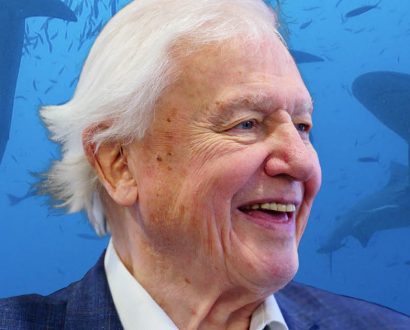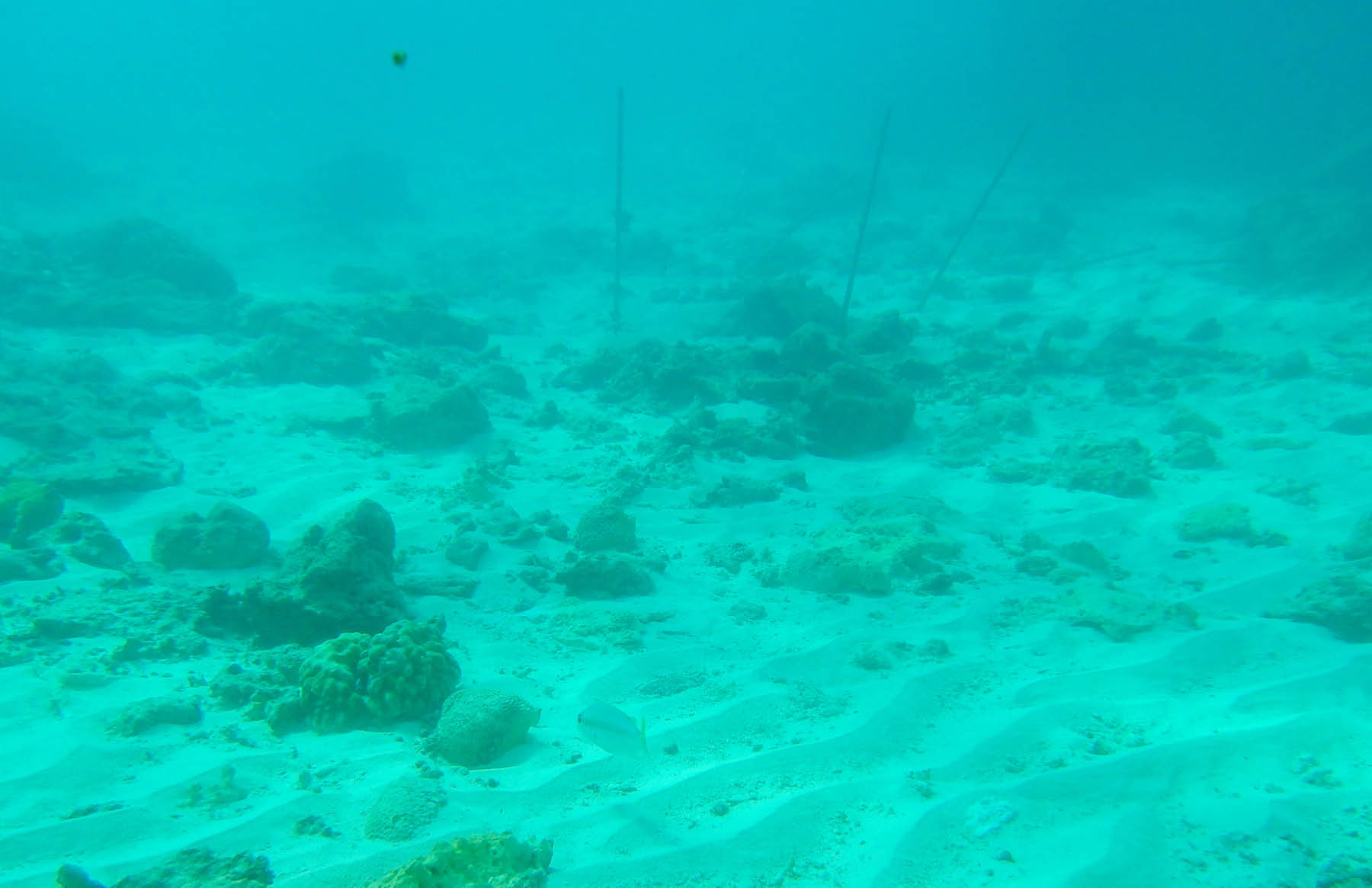David Attenborough’s urgent plea: “If we save the sea, we save our world”

There’s a moment in Ocean – David Attenborough’s latest documentary from Silverback Films and Open Planet Studios – when the tone shifts dramatically. The bright music fades. The coral, the scallops and the swirl of life disappear. What’s left is damage. The once vibrant seafloor is scarred and lifeless, with sediment clouding the water like smoke.
It’s a sobering reality. And Attenborough doesn’t sugarcoat it. But, as he’s done so many times before, he leaves the door open for hope.
"We are draining the life from our ocean. Now, we are almost out of time," he says.
"I would find it hard not to lose hope were it not for the most remarkable discovery of all – the ocean can recover faster than we had ever thought possible. It can bounce back to life."
A century of wonder
At 99 years old, Attenborough’s life is inseparable from the story of the planet. For nearly 70 years, he’s taken audiences from Madagascar to the Mariana Trench, across deserts, forests and coral reefs, opening our eyes to nature’s marvels with his honeyed voice and boyish wonder.
His career began in the early 1950s, when television was still an infant technology. Since then, he has created or narrated more than 100 programs, reaching billions of viewers. Now, as he approaches a century of life, it’d be understandable if he had chosen to step back and enjoy retirement. But instead, he’s turned his gaze once more to the ocean to deliver what may be his final – and most urgent – plea.

"The ocean can recover faster than we had ever thought possible. It can bounce back to life."
In Ocean, which was filmed over two years with footage from every ocean on Earth, Attenborough takes us on a journey few, if any, have gone on before. In fact, he tells us, this is the first time audiences are given a front-row seat to bottom trawling.
This widespread fishing practice uses vast weighted nets, sometimes as wide as a football field, to drag along the seafloor. Indiscriminately, they sweep up everything in their path – coral reefs, ancient sponges, juvenile fish – all in search of, often, a single species.
"Over three-quarters of a trawler’s catch may be thrown away. It’s hard to imagine a more wasteful way to catch fish," he reveals.
An entire ecosystem on the line
But the waste is only one part of the story.
"An area almost the size of the entire Amazon Rainforest is trawled every year, and much of that seabed is plowed again. Over and over," he says. "This journey of the sediment unleashes vast amounts of carbon dioxide, which in turn contributes to the warming planet.
"The trawlers tear the seabed with such force that their trails of destruction can be seen from space. Very few places are safe from this, including almost nowhere in my own country."
Even in so-called marine protected areas, bottom trawling is not only permitted – it’s incentivized.
"Surely, you would assume it must be illegal. But it’s not; it’s subsidized," he points out. "Twenty billion dollars are spent every year, supporting overfishing on an industrial scale."
"Even the most remote parts of the planet are no longer safe."
He doesn’t hold back on the human cost, either. Wealthy nations are sending fleets to take the food sources of coastal communities, depriving them of the fish they’ve relied on for generations.
"This is modern colonialism at sea," Attenborough says.
"Some 400,000 industrial vessels now hunt in every corner of the ocean. Nowhere is too far or too deep. Even the most remote parts of the planet are no longer safe."
In Antarctica, these fleets are now targeting krill, the tiny red crustacean that underpins the entire Southern Ocean food chain, to boil and process into supplements, even pet food.
"How can wildlife compete with this? Some claim this is sustainable. But we may now be removing the foundation of an entire ecosystem," he warns.
The sea’s remarkable ability to heal
And yet, even now, Attenborough holds on to hope. True to form, he doesn’t fall victim to devastation. Instead, he turns to wonder.
"The first time I used scuba gear to dive on a coral reef, I was so taken aback by the spectacle before me, I forgot – momentarily – to breathe," he recalls, with joy.
"Nothing I’d ever seen on land had come close to the sensory overload of so much life and such diversity right before my eyes."
The ability to see the ocean had been transformed with the invention of scuba gear.
"It changed everything. Suddenly, an extraordinary new world of wonder and surprise came into view," he marvels.
And still, we are discovering more. Every year, scientists find thousands of new marine species, from shrimp with kaleidoscopic vision to crabs wielding anemones like pom poms. Coral reefs, long known to harbor immense biodiversity, are now understood to be vast collaborations – not just animals, but plant-like algae living inside their bodies, building stone fortresses as they grow.
"If we just let nature take its course, the sea will save itself."
In fact, in one stretch of coastline, Attenborough shares that decades of overfishing had reduced the ocean to little more than barren ground. But when the area was declared a no-take zone, life surged back. Predators returned. Kelp forests recovered, and spiny lobsters grew larger, enabling them to lay more eggs, which then traveled along the tide to revive distant fisheries.
"If we just let nature take its course, the sea will save itself," he insists. "Recovery like this is possible anywhere, even in the most overfished part of the most overfished sea on Earth. There is still hope."
A global call to action
But hope, Attenborough quickly reminds us, is not a strategy. It must be paired with action. To change course, the world must work together, acting swiftly and decisively.
Although oceans cover more than 70 percent of the planet, less than three percent are fully protected. According to Attenborough, that’s not nearly enough.
"To save it from collapse, scientists have said we must fully protect at least a third. For it to work, it should be, for the most part, along our heavily fished coastlines. And the area we choose should also include those magnets for life out in the open ocean – sea mountains," he explains.
"Restoring the ocean is for everybody on Earth."
It’s as much an environmental necessity as it is a moral imperative.
"If we can protect the areas on land where the entire human population requires space to live, surely we can do it in the sea. Restoring the ocean is for everybody on Earth. In front of us is a chance to protect our climate, our food and our home," he urges.
"After a lifetime of filming the natural world, I cannot remember a more exciting opportunity for our species. This could be the moment of change. Nearly every country on Earth has just agreed on paper to achieve this bare minimum and fully protect a third of the ocean."
Now comes the challenge of turning words into action.
The final frontier
Ocean was timed to coincide with a pivotal moment. This June, leaders from around the world will gather for the United Nations Ocean Conference to determine the future of the planet’s oceans. At the heart of the talks is the question: Will we commit to safeguarding one-third of our seas?
For Attenborough, the answer must be yes – not just for wildlife, but for humanity itself.
"I hope they’ll realize how much the oceans matter to all of us, the citizens of the world, and perhaps this film can help draw more attention to the decisions that they’re making and why they’re so important," he shares.
"If we save the sea, we save our world."
The film closes where Attenborough’s own journey began – along the Jurassic Coast of southern England. There, in his youth, he searched for fossils. Now, nearly a century later, he stands above those same waters with a final message.
"When I first saw the sea as a young boy, it was thought of as a vast wilderness to be tamed and mastered for the benefit of humanity. Now, as I approach the end of my life, we know the opposite is true," he reflects.
"It is my great hope that we all come to see the ocean not as a dark and distant place with little relevance to our lives on land, but as the lifeblood of our home. I’m sure that nothing is more important. For if we save the sea, we save our world."
And maybe, just maybe, this time, the world will listen.